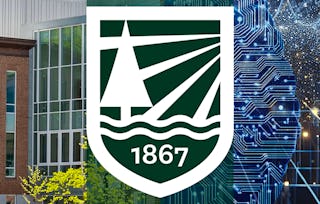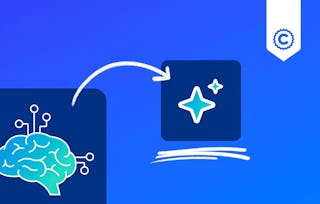The course "Mastering Neural Networks and Model Regularization" dives deep into the fundamentals and advanced techniques of neural networks, from understanding perceptron-based models to implementing cutting-edge convolutional neural networks (CNNs). This course offers hands-on experience with real-world datasets, such as MNIST, and focuses on practical applications using the PyTorch framework. Learners will explore key regularization techniques like L1, L2, and drop-out to reduce model overfitting, as well as decision tree pruning.

Ends soon: Gain next-level skills with Coursera Plus for $199 (regularly $399). Save now.

Mastering Neural Networks and Model Regularization
This course is part of Applied Machine Learning Specialization

Instructor: Erhan Guven
Included with
Recommended experience
What you'll learn
Build neural networks from scratch and apply them to real-world datasets like MNIST.
Apply back-propagation for optimizing neural network models and understand computational graphs.
Utilize L1, L2, drop-out regularization, and decision tree pruning to reduce model overfitting.
Implement convolutional neural networks (CNNs) and tensors using PyTorch for image and audio processing.
Skills you'll gain
Details to know

Add to your LinkedIn profile
12 assignments
See how employees at top companies are mastering in-demand skills

Build your subject-matter expertise
- Learn new concepts from industry experts
- Gain a foundational understanding of a subject or tool
- Develop job-relevant skills with hands-on projects
- Earn a shareable career certificate

There are 5 modules in this course
This course provides a comprehensive introduction to neural networks, focusing on the perceptron model, regularization techniques, and practical implementation using PyTorch. Students will build and evaluate neural networks, including convolutional architectures for image processing and audio signal modeling. Emphasis will be placed on comparing performance metrics and understanding advanced concepts like computational graphs and loss functions. By the end of the course, participants will be equipped with the skills to effectively design, implement, and optimize neural network models.
What's included
2 readings
In this module, you will learn about the fundamental concepts in neural networks, covering the perceptron model, model parameters, and the back-propagation algorithm. You'll also learn to implement a neural network from scratch and apply it to classify MNIST images, evaluating performance against sklearn's library function.
What's included
4 videos2 readings3 assignments1 ungraded lab
In this module, you'll delve into techniques to enhance machine learning model performance and generalization. You'll grasp the necessity of regularization to mitigate overfitting, compare L1 and L2 regularization methods, understand decision tree pruning, explore dropout regularization in neural networks, and observe how regularization shapes model decision boundaries.
What's included
3 videos3 readings3 assignments1 ungraded lab
In this module, you'll cover essential concepts and practical skills in deep learning using PyTorch. You'll also learn computational graphs in supervised learning, create and manipulate tensors in PyTorch, compare activation and loss functions, learn implementation steps and library functions for neural network training, and optimize models by running them on GPU for enhanced performance.
What's included
3 videos2 readings3 assignments1 ungraded lab
In this module, you'll focus on advanced applications of convolutional neural networks (CNNs) using PyTorch. You'll also learn to implement CNN filters, compare different CNN architectures, develop models for image processing tasks in PyTorch, and explore techniques for modeling audio time signals using Spectrogram features for enhanced analysis and classification.
What's included
2 videos3 readings3 assignments1 programming assignment
Earn a career certificate
Add this credential to your LinkedIn profile, resume, or CV. Share it on social media and in your performance review.
Instructor

Offered by
Explore more from Machine Learning
 Status: Free Trial
Status: Free Trial Status: Free Trial
Status: Free Trial Status: Free Trial
Status: Free TrialDartmouth College
 Status: Free Trial
Status: Free TrialCoursera
Why people choose Coursera for their career




Frequently asked questions
To access the course materials, assignments and to earn a Certificate, you will need to purchase the Certificate experience when you enroll in a course. You can try a Free Trial instead, or apply for Financial Aid. The course may offer 'Full Course, No Certificate' instead. This option lets you see all course materials, submit required assessments, and get a final grade. This also means that you will not be able to purchase a Certificate experience.
When you enroll in the course, you get access to all of the courses in the Specialization, and you earn a certificate when you complete the work. Your electronic Certificate will be added to your Accomplishments page - from there, you can print your Certificate or add it to your LinkedIn profile.
Yes. In select learning programs, you can apply for financial aid or a scholarship if you can’t afford the enrollment fee. If fin aid or scholarship is available for your learning program selection, you’ll find a link to apply on the description page.
More questions
Financial aid available,





